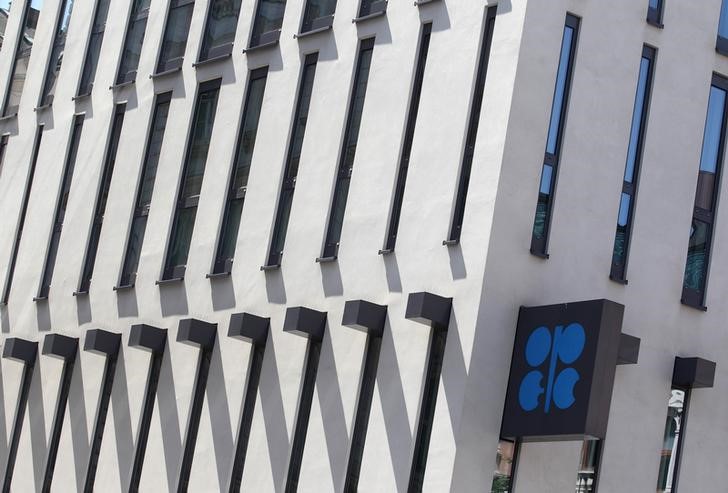(Bloomberg) --
OPEC and its allies were edging closer to a consensus on extending production cuts, even as wrangling continued over whether the cartel’s members could be trusted to stick to their promises.
Four days after a proposal to bring forward the meeting to this Thursday was first floated, there was still no agreement on the date. And while a plan to extend output cuts by one month was gaining support, delegates said Saudi Arabia and Russia were seeking assurances that all members would comply with the cuts they all sign up to.
Brent oil rose above $40 for the first time in almost three months. The rally has been driven by the historic output cuts OPEC and its allies agreed to in April and also a faster-than-expected recovery in demand as the world emerges from lockdown.
The risk for OPEC now is that as higher prices encourage U.S. shale producers to bring production back online, the tentative recovery could falter. It needs to decide whether to extend those historic cuts or taper them in July as initially planned.
Russia and several other OPEC+ nations favor extending the group’s current production cuts by one month, according to people familiar with the situation. It’s unclear if that’s enough for leading OPEC member Saudi Arabia, though the proposal is within the range of the kingdom’s own call for a one to three-month elongation.
Price War
As recently as last week, Russia’s stance was that it didn’t want to extend the cuts and instead favored sticking to the original agreement to ease them from July. But a person familiar with its position said on Tuesday it was advisable to find a compromise. In March, Moscow resisted a Saudi-led proposal to deepen production cuts as the coronavirus spread; talks broke down and the kingdom launched a price war that crippled producers and left gaping holes in countries’ budgets.
The main sticking point in discussions this week had Russia and Saudi Arabia on the same side as both sought assurances that all members would stick to agreed cuts so that the burden is fairly shared, according to delegates. Moscow took the unusual step of disclosing its adherence to the deal on Tuesday.
Saudi Arabia insisted that countries should report production figures for May, the first month of the OPEC+ coalition’s latest agreement, according to a delegate who asked not to be identified.
Russia, which was often a laggard in the past but has stuck to its pledges this time, is also pushing for any extension to be conditional on compliance. Iraq and Nigeria, who have repeatedly flouted OPEC commitments during the past three years, made less than half of their agreed cutbacks last month, a Bloomberg survey showed on Monday.
Iraq, Nigeria
In what appeared to be a response, Iraq’s finance minister and acting oil minister, Ali Allawi, made an unusual Twitter appearance, saying the country is committed.
“Despite Iraq’s severe financial constraints, we’re addressing technical issues that will allow us to further reduce oil output,” he said.
His Nigerian counterpart Timipre Sylva posted a similar message on Instagram later on Tuesday. He acknowledged that the West African country only made about half its pledged cuts last month, but promised that crude output will be within its quota by the end of June.
The original deal -- struck in April as the virus savaged oil demand -- set out output reductions of 9.7 million barrels a day, or about 10% of global supply, for May and June. Saudi Arabia, Kuwait and the United Arab Emirates then made further voluntary cuts of about 1.2 million barrels a day for June, bringing the total OPEC+ curbs to almost 11 million barrels a day.
Under the current OPEC+ deal, supply cuts are meant to be eased to about 7.7 million barrels a day in July, followed by an additional tapering at the start of 2021.
©2020 Bloomberg L.P.

